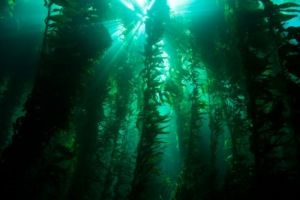News
Denmark blasted for blocking marine conservation efforts
This article is more than 8 years old.
Danes one of four nations opposing kelp forests being put on OSPAR threatened species list

Kelp forests are a key marine habitat (photo: www.westcoast.fisheries.noaa.gov)
It’s a catch 22 for Denmark. On the one hand, the nation is a beacon for sustainability, and on the other, fishing remains a key industry in the Danish Commonwealth. This time, it seems, fishing has won out.
According to Oceana, an international organisation focused on ocean conservation, Denmark is among four nations “strongly opposed” to the inclusion of marine kelp forests on the EU-maintained ‘OSPAR List of Threatened and or Declining Species and Habitats’.
The other three countries Oceana claims are against the kelp forest conservation efforts are Iceland, Norway and Ireland – all nations that traditionally rely considerably on fishing as an industry.
The OSPAR Commission, on which 15 governments and the EU co-operate to protect the marine environment of the northeast Atlantic, is in a shambles, according to Oceana.
“OSPAR has lost its purpose. Fifteen governments and the EU do absolutely nothing to fulfil its mission: to protect the marine environment of the Northeast Atlantic,” said Lasse Gustavsson, the head of Oceana in Europe.
“The convention is stuck in endless discussions about texts that can only be understood as a way to contract parties to block action. It is time for OSPAR to get real. More talking won’t halt the dramatic biodiversity loss of our oceans.”
READ MORE: Conservationists hail Faroese ‘precedent’ that could make herding pilot whales illegal
Critical habitat
Oceana pointed to not one species or habitat being added to the OSPAR List over the past years, and despite the serious climate change threat to kelp forests, nothing has been done.
“Kelps are an important foundation species that provide food and shelter to numerous fish, invertebrates and marine mammals,” wrote Oceana.
“They are particularly effective nursery grounds for juveniles, sustaining many key and commercially important species by providing shelter from predation (such as Atlantic cod and pollock). Kelp forests are regarded as one of the most productive habitats on the planet but they are highly sensitive to water quality changes resulting from pollution, eutrophication and sedimentation.”










































